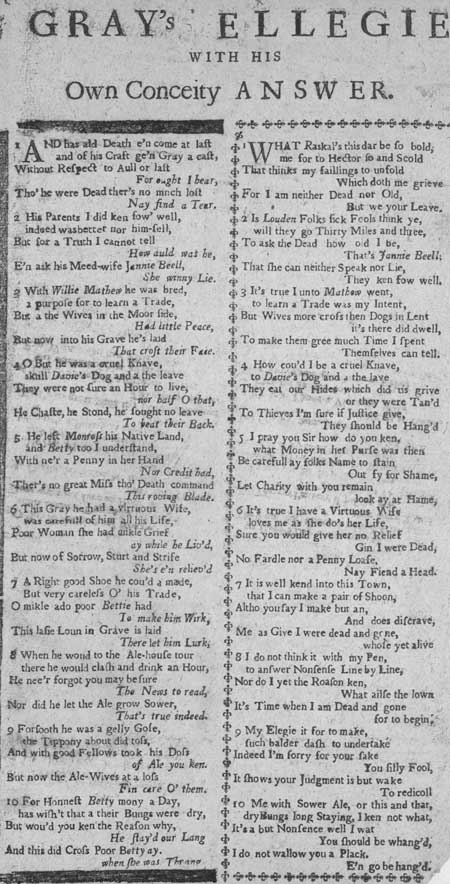Commentary
Verse 1: 'AND has ald Death e'n come at last / and of his Craft ge'n Gray a cast, / Without Respect to Aull or last / For ought I hear, / Tho' he were Dead ther's no much lost / Nay find a Tear,' This ballad is from the genre of mock elegy or comic elegy. Such poems became popular in Scotland after the huge success of 'The Life and Death of Habbie Simson, Piper in Kilbarchan' by Robert Sempill of Beltrees (c.1595-1659). This introduced the 'Standard Habbie' verse form used here. Mock or comic elegies were written on fictional characters and real people, both dead and alive. In this example, the comedy derives from the highly insulting memorial to the apparently deceased Gray, and from the inclusion alongside it of an angry response form Gray, who, it transpires, is not dead after all! Early ballads were dramatic or humorous narrative songs derived from folk culture that predated printing. Originally perpetuated by word of mouth, many ballads survive because they were recorded on broadsides. Musical notation was rarely printed, as tunes were usually established favourites. The term 'ballad' eventually applied more broadly to any kind of topical or popular verse.
View Transcription | Download PDF Facsimile
|
 |
Probable period of publication:
1720-1730 shelfmark: Ry.III.c.36(112)
 View larger image
View larger image
|


